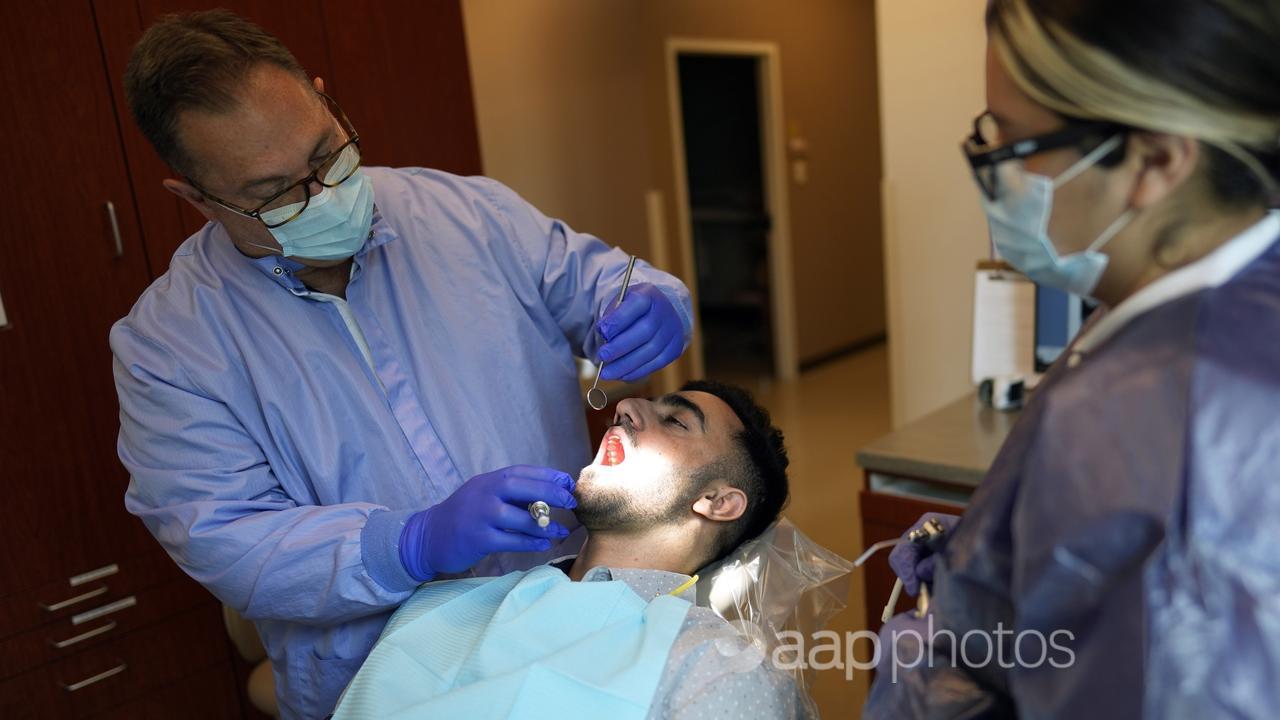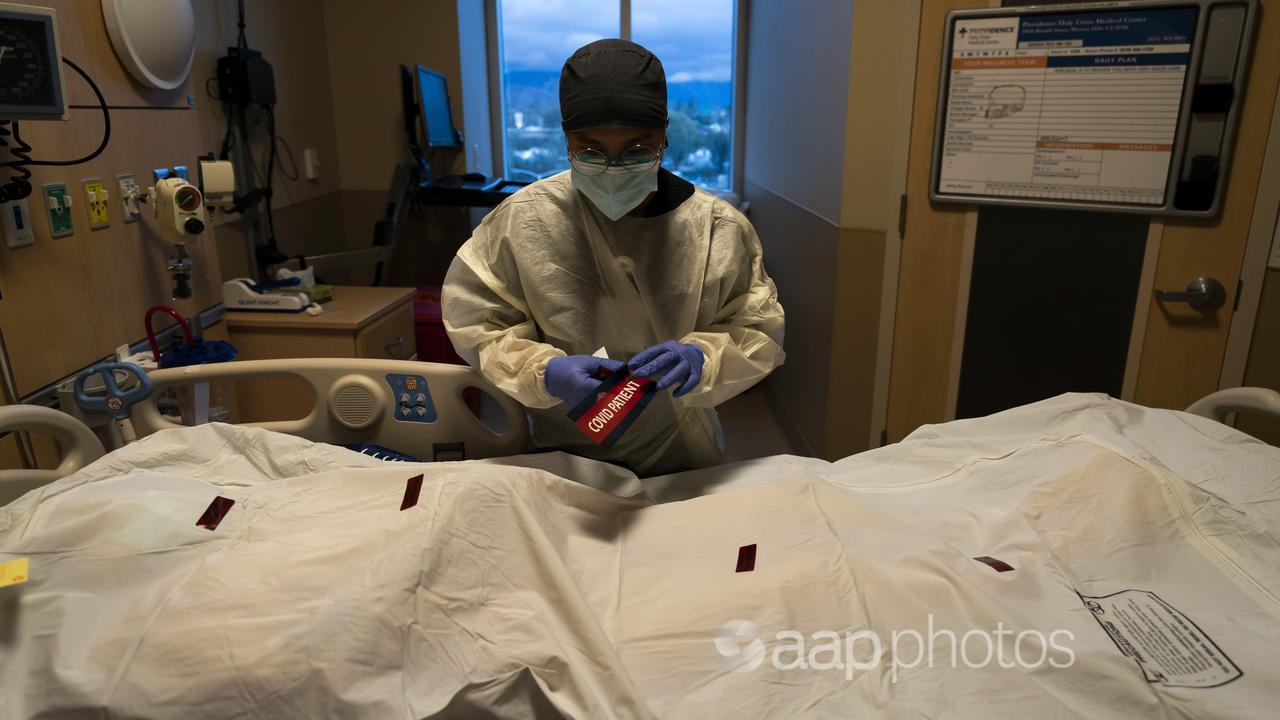A naturopath claims root canal fillings are the most “dangerous thing you can have in your mouth” because the procedure “kills” teeth.
This is false. Experts told AAP FactCheck the treatment does not kill teeth or remove vital tissue or nerves from around the tooth. The procedure is aimed at keeping affected teeth alive to help prevent infection.
This Facebook post (screenshot here) shows part of a lecture by naturopath Barbara O’Neill, who was permanently banned from providing any health services in NSW in 2019 after regulators found she “poses a risk to the health and safety of members of the public”.
In the video, she warns of the supposed danger of having root canal surgery.
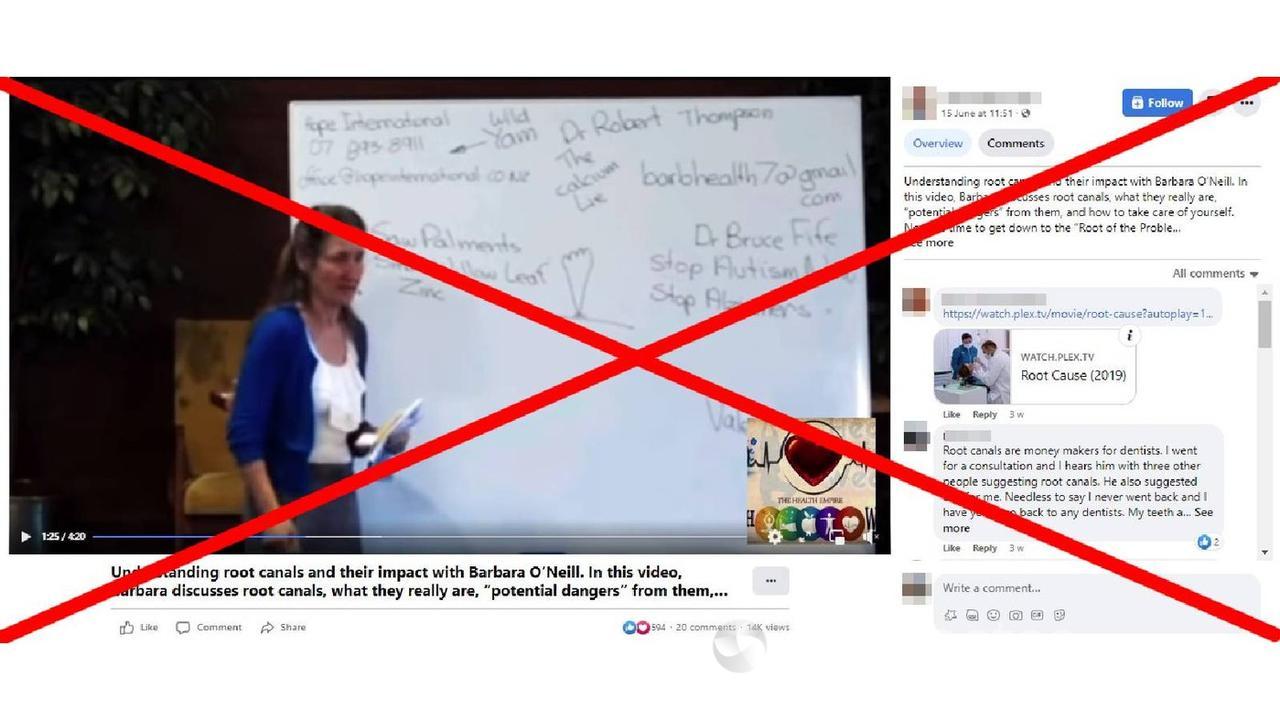
“The reason for this is a root canal filling is a dead tooth. The root has been taken out so there is now no blood, no lymph going to that tooth to clean it. And the inside of a tooth is like honeycomb,” Ms O’Neill says.
“So you just picture this dead tooth in your mouth, no blood, no lymph, microbes can live in there. Not only this — the body tries to reject something dead, so an infection can be set up here, and sometimes you don’t know because you’ve got no nerves or feeling in that tooth.”
She also tells her followers to have any root canals removed.
Root canal treatment, known as endodontics, treats a delicate structure containing nerves and blood vessels inside a tooth called dental pulp.
The inflamed or infected pulp, which isn’t essential for adult tooth survival, is removed before the space is filled and sealed.
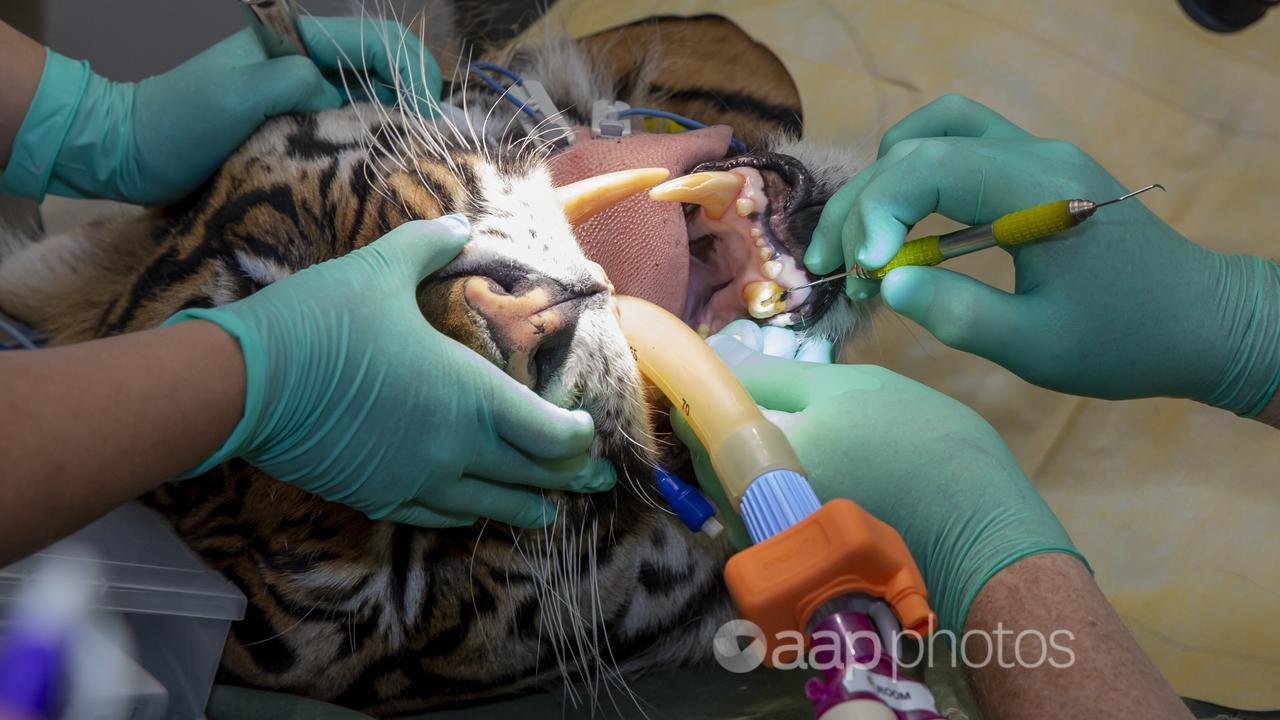
University of Queensland Professor Ove Peters says there’s “absolutely no basis” for claiming that the procedure kills teeth as the periodontal ligament remains connected to the tooth.
“A root canal treated tooth is not ‘dead’ any more than a fingernail or the cornea, the outer layer of the eye, and we are not advocating removing either of these,” Prof Peters told AAP FactCheck.
Harvard University Associate Professor Jennifer Gibbs, director of the Gibbs Laboratory which researches endodontic disease, says there’s “a lot of misinformation” in the video.
“The purpose of root canal treatment is to eliminate or prevent infections, while allowing patients to keep their natural teeth,” she told AAP FactCheck.
“It does involve removing the vital tissues inside the tooth. The tooth is still surrounded by vital tissues including the periodontal ligament, so I don’t agree with calling it a ‘dead tooth.'”
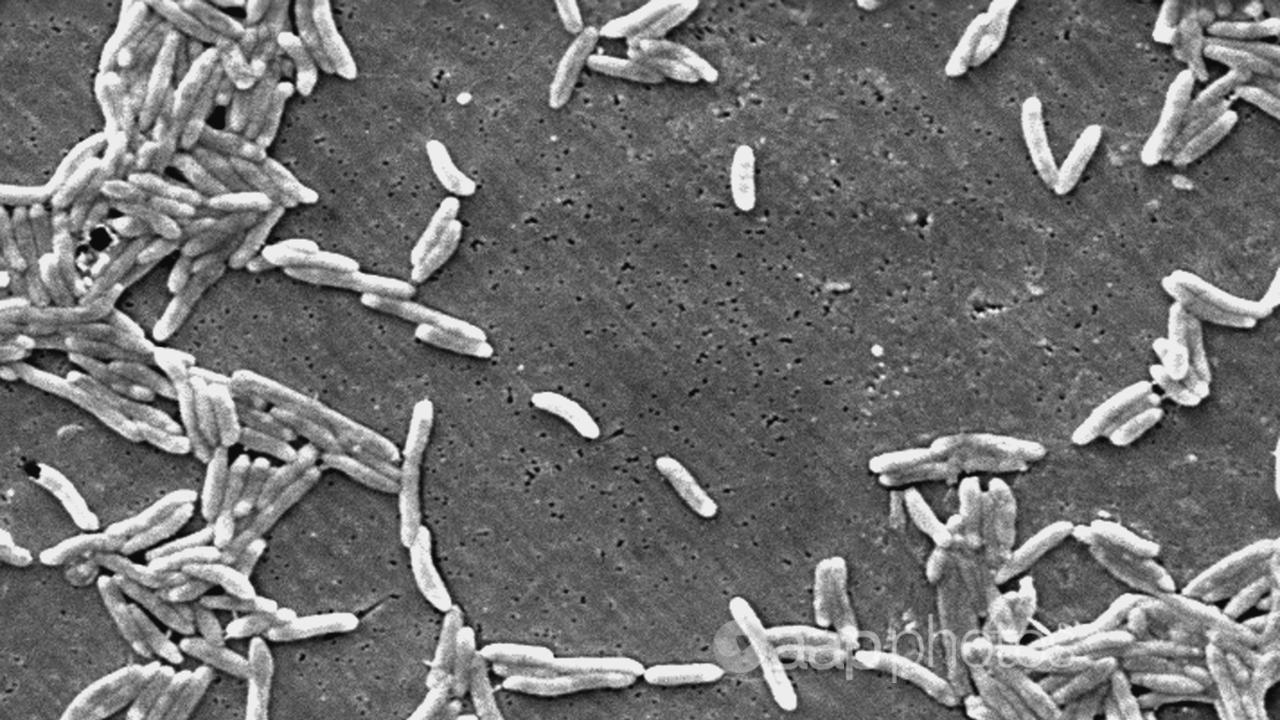
Prof Peters said Ms O’Neill also uses “flawed logic” about how the body fights infection to push the claim about the alleged risks from root canals.
“Every time one brushes teeth or even worse, uses floss, bacteria will be in the bloodstream, this is called bacteremia,” he explained.
“The nature of human immune defence is that these bacteria will be killed right away so there is zero risk of distant organ damage.”
Dr Gibbs also says calls for patients to remove their root canal fillings, or replace them with dentures or prosthetic implants, could unnecessarily impede their oral function.
AAP FactCheck has previously debunked claims that root canals are toxic and cause chronic illnesses.
The Verdict
The claim that root canals kill teeth and increase the risk of infection is false.
Experts told AAP FactCheck that root canals aim to prevent infections while keeping natural teeth alive.
False – The claim is inaccurate.
AAP FactCheck is an accredited member of the International Fact-Checking Network. To keep up with our latest fact checks, follow us on Facebook, Twitter and Instagram.
All information, text and images included on the AAP Websites is for personal use only and may not be re-written, copied, re-sold or re-distributed, framed, linked, shared onto social media or otherwise used whether for compensation of any kind or not, unless you have the prior written permission of AAP. For more information, please refer to our standard terms and conditions.

